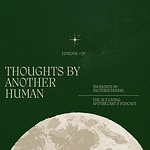As a healer, I'm here for making america (and humanity) healthy again. I've been talking about it for over three years now; for instance, here's one of my most popular writings talking about the propaganda campaign against American citizens in regards to Covid & the vaccines.
Or most recently, here's podcast episode #12 where I share my thoughts on how I believe all of humanity was targeted by Covid & the vaccines... notice a trend?
While there are definitely broad strokes you can take with your health (which we'll get into), health really is an unique personal journey that looks different for everyone. This is why I love Medical Astrology because it shows each and every one of us what foods to eat (and stay away from), herbs to keep stock, and lifestyle choices to make to stay balanced and healthy.
I'll be officially opening up for private Medical Astrology readings November 18th. You can read more about that below.
Over the last several episodes (starting from episode #5), we've been going over what the nature of human beings looks like according to Traditional Western Medicine. With this particular healing system, there are Seven Natural Things which constitute the nature of human beings, all of which need to be in balance for optimal health.
The Seven Natural Things are:
The Four Elements - what everything in Nature is made of
The Four Humors - the primary components of the human body in reflection of the Four Elements
The Four Temperaments - the basic nature of a human being which includes physique, personality, and physiological makeup
The Organs & Similar Parts - the basic components of the human body and their function
The Four Faculties - the basic functions of the human body and their associated spirits
The Life-Giving Principles - the energies and essences that give life to humans
The Four Administering Virtues - the four secondary physical faculties of all bodily functions
When all Seven Natural Things are balanced and working together harmoniously, we’re healthy and thriving; when they're imbalanced and not working together properly, we’re diseased and sick; and when one of them cease to function, we die.
Now, what would cause any of these Natural Things to become imbalanced and out of sync?
Hygiene.
Hygiene is the art and science of personal health maintenance and disease prevention. Traditional Western Medicine considers hygiene as the foundation of all good health; whereas poor hygiene (in most cases) is the root source of most disease. TWM has six factors it considers as the basis of proper health management and disease prevention, known as the Six Hygienic Factors or the Six Non-Natural Factors.
The Six Hygienic Factors are:
Air
Diet
Exercise & Rest
Sleep & Wakefulness
Retention & Evacuation of Waste
Anxieties of the Mind & Emotions
Air
We spoke extensively about the breath and pneuma on episode #13, so naturally Air would be the first Hygienic Factor. Air and the pneuma it carries is what vitalizes our bodies in order to function. Mere minutes without air & pneuma and we are dead; but also, the quality of air is just as important as quantity. There are many things to consider when it comes to the air we breathe, including: living environment, climate, seasonal changes, and pollution.
Our living environments should be free of bad odors, vapors, and toxins. This means throwing out the rotting veggies (or composting them), taking out the trash regularly, and overall keeping a clean living space mold-free. Some clutter here and there doesn't hurt (unless you trip over it) so there's no need to obsessively clean; but if you start to smell something off, best to find the source and get rid of it rather than covering it with candles and room spray. Save those for after you clean.
A living space that receives great amount of sunlight but can be tempered by shades, is best. It should be well ventilated and not too stuffy or drafty; it should have nice heating during the colder months and be exposed to cool breezes during the warmer months; and it should be well protected from swampy areas as they are breeding grounds for diseases.
Country, state and its climate is an important factor as well. Extremes such as too hot, too cold, too wet, or too dry all add unnecessary stress to our bodies and health. A climate that's too hot but also too dry can eventually wither and dry out the much needed moisture in our bodies. A climate that's too hot but also too moist can make the air harder to breathe, breed & carry infectious diseases, and wear out energy. A climate that's too cold and dry tends to provoke conditions such as arthritis and rheumatism; whereas a climate that's too cold and moist tends to provoke depression and asthma. Ever wondered why you feel so good at the beach or in the mountains? It's not just you escaping reality, the air in these places actually promote good digestion and sound sleep... so all you guys who live in these places yearly, consider yourselves blessed you sons-of-bitches.
Just like the seasons change, as do we, but it's important our bodies have the adaptability and resilience to adjust to the changes and stay healthy. The strength of our Vital Faculties (which governs the basic functions of being alive including respiration, circulation, and the immune system) is what controls our response to seasonal changes, but our humors (or, vital fluids) are also affected. Winter aggravates phlegm, which makes us more prone to coughs and colds; it also moves most of our blood circulation into the interior to warm up our vital organs, which means we need to eat more to consume more energy and stay warm. Heavier, richer foods are best. All that phlegm accumulated during winter then loosens up and rises to the surface, aggravating spring allergies. Springtime is one of the best times for detoxing and fasting, especially after a cold winter slowing down different processes in the body. In summer, most of our blood circulation is moved to the exterior to disperse excess heat and cool down the body; this slows down digestion so lighter meals are often better. More fluids, too. Hot, dry summers aggravate yellow bile, which can lead to fevers, infections, and inflammatory conditions, though they tend to run their course way faster than in the winter. As temperatures fluctuate during fall, sore throats, coughs, and chills are expected. It's best to avoid cold foods and drinks as the weather gets colder. Alas winter comes again and the cycle of life continues round and round.
Pollution. Such a modern-day problem, but a problem nonetheless. Pollution jeopardizes the quality of air, and the quantity of pneuma breathed in; thus affecting overall quality of health. Brain fog, dry eyes, labored breathing, and congestion are all common. Fresh air free of pollutants is best. If you live in a city, investing in air purifying plants and machines is a must.
Diet
What you consume, and also how, when, and where, are next in importance when it comes to health. For optimal, balanced health, a pure, wholesome, and nutritious diet is best; which is why Traditional Western Medicine considers dietary support as one of the main tools of health management and disease prevention. Food is safe, gentle, and has low toxicity, not to mention very effective when it comes to health. Unlike the air we breathe, we have way more control over what we eat and drink.
What is a pure, wholesome, nutritious diet? Food that is consumed in as natural a state as possible; the more altered and processed, the less vitality and nutrition it holds. Whole grains and natural sweeteners are best for carbohydrates, whereas hydrogenated food like fried, fast food, margarine, packaged processed snacks, and coffee creamers are best avoided and minimally consumed as possible. Fresh, pure water that's free of pollutants and microbes is the foundation of a good diet, so having soft, clear water (preferably fresh mountain spring) is best. Ice cold water impairs immunity, circulation, and digestion, so room temperature to slightly cool water is best.
A specific daily diet that's healthy and balancing looks different for everyone, as it depends on individual constitution and temperament, however there are some valuable guidelines to follow when it comes to healthy eating:
Moderation is best; avoid extremes such as excessive consumption and excessive restriction
Only eat when you're actually hungry, otherwise your body isn't ready to receive and digest food properly
Eat when you're in neutral to good spirits, as negative emotions and stress weakens digestion
Stimulate your appetite and digestion by doing light exercise before eating; this could be a walk or mild jog
Have your biggest meal midday when the Sun is at its peak, that's when our powers of digestion are at its peak too
Eat a light dinner at least three hours before bed, as heavy late night meals will disturb digestion and good sleep
Chew food as best you can before swallowing, as digestion actually starts in the mouth
Take sips of water during meals and leave heavier consumption for in between; too much liquid dulls digestive juices
Make meals a joyful experience; take care to eat in good company and a relaxing environment so digestion is working efficiently
Take time to eat and digest food properly, avoid eating on the run
Leave space for your stomach to have some working room to digest, avoid overeating
Next episode we'll dive into how exercise & rest and sleep & wakefulness impact health. For now, think of these guidelines when you eat your next meal. Notice what you're eating, where you're eating, and how you feel when you're eating. Take note the next time you eat.
Do you notice anything?
Tune I feel jives well with this episode:
Podcast Playlist featuring all episode tunes:



















Share this post